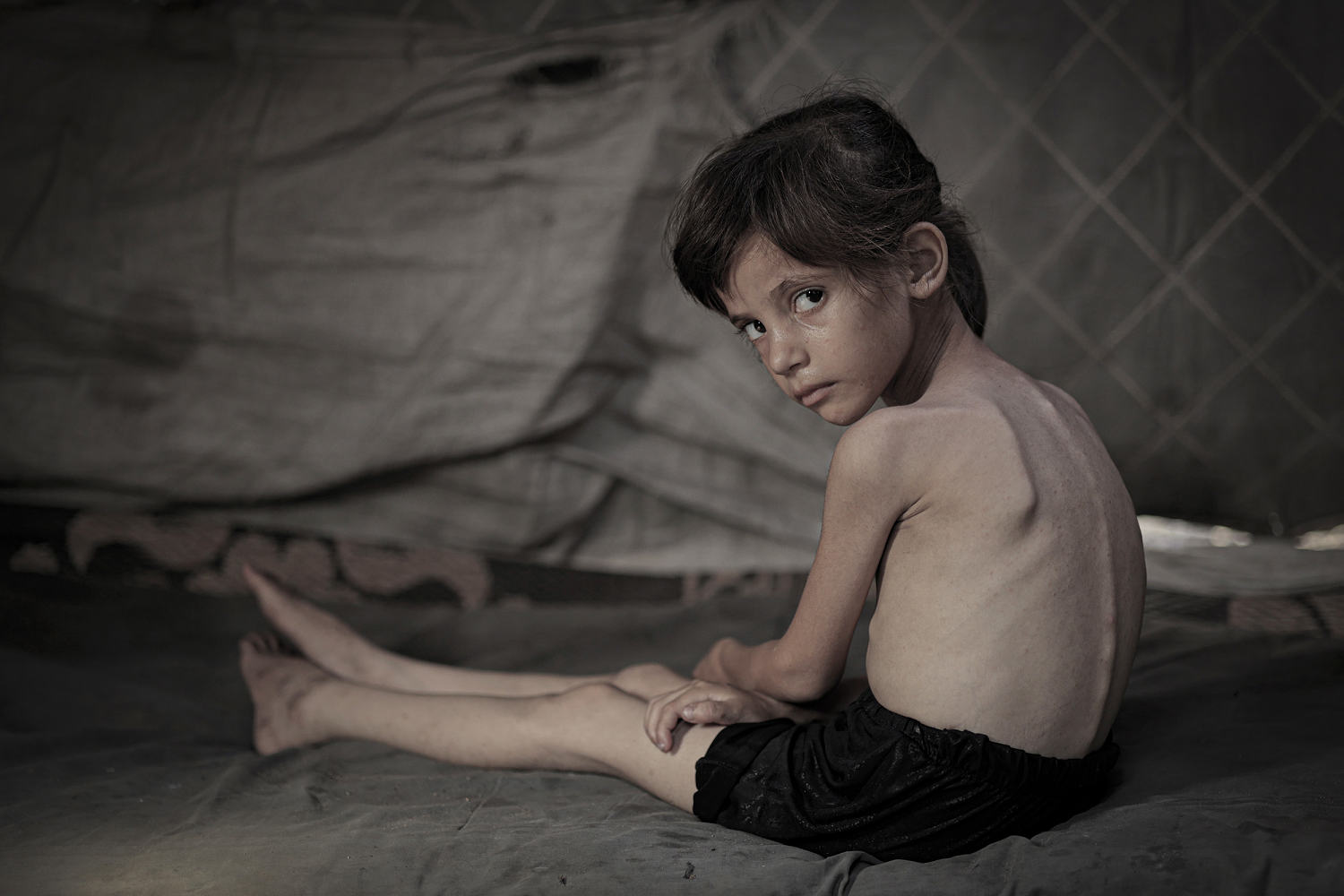
Gaza is facing a catastrophic hunger crisis under Israel’s ongoing assault, with experts warning that the situation has reached a point of no return. Aid organizations, health professionals, and international experts are sounding the alarm as malnutrition soars and children suffer irreversible damage. Without immediate and large-scale intervention, the death toll is expected to escalate dramatically — and the long-term effects may scar generations to come.
The humanitarian crisis in Gaza has reached what many experts now call a “tipping point,” as hunger and malnutrition escalate rapidly under Israel’s military offensive and aid blockade. According to humanitarian organizations, the situation is deteriorating so fast that mass death from starvation is imminent unless urgent help arrives.
"The window to prevent mass death is rapidly closing, and for many it's already too late," said Kiryn Lanning, senior director of emergencies at the International Rescue Committee (IRC).
The World Health Organization (WHO) has echoed this grave warning, stressing that the health and future of an entire generation is at risk.
Deaths from Starvation Are Mounting
Doctors and aid workers inside Gaza — many themselves hungry and exhausted — have long warned that food shortages, rising costs, and constant conflict are pushing the population into famine. Their fears are now a tragic reality.
Dr. Ahed Jabr Khalaf, a pediatrician at Nasser Hospital in Khan Younis, told NBC News that several more children died from malnutrition just on Wednesday.
According to the Integrated Food Security Phase Classification (IPC) — the world’s leading authority on food crises — the "worst-case scenario of famine" is now unfolding in Gaza. The organization points to Israel’s offensive and restrictions on humanitarian aid as the primary contributors.
A Crisis Past the Breaking Point
Scenes of people collapsing from hunger have ignited international outrage. The Israeli military has announced limited pauses in fighting to allow aid in, but experts warn it's not nearly enough.
Jeremy Konyndyk, president of Refugees International, said:
“Day after day, there are reports of multiple deaths from starvation. That tells you the population has now reached a point of extreme vulnerability.”
Jeanette Bailey from the IRC added:
“We’ve seen this in previous famine conditions. Once mortality numbers start to rise, we must act urgently — or they will spike exponentially.”
The Palestinian Health Ministry reported that 154 people have died from starvation, including 89 children, since the start of the war. Worryingly, daily updates on starvation deaths have only begun in recent weeks — suggesting many more may go unreported.
Children Face Lifelong Damage
Even for the children who survive, the toll is devastating.
“Their little bodies are shutting down,” said Lanning. “We’re seeing a spike in hospital admissions for malnutrition.”
Emily Keats, a researcher at Johns Hopkins Bloomberg School of Public Health, warned that the effects of malnutrition can last a lifetime. Children suffering from wasting (extreme thinness), stunting (impaired growth), and micronutrient deficiencies face higher risks of poor health, developmental delays, and early death.
According to Dr. Marko Kerac, a clinical associate professor at the London School of Hygiene & Tropical Medicine, the first 1,000 days of life — up to age two — are particularly critical. Damage done during this window is often permanent.
“Even older children and adults can face long-term effects. The quicker we treat them, the better the chances — but time is running out,” Kerac added.
A Multigenerational Crisis
The damage won’t stop with this generation.
Keats noted that women who suffered malnutrition as children are more likely to give birth to underweight or growth-restricted babies, perpetuating the cycle of poor health.
Beckie Ryan, CARE’s response director in Gaza, said many children under 5 may never recover.
Urgent Action Needed
Despite claims from Israeli Prime Minister Netanyahu’s office suggesting Hamas is “fueling the perception of a humanitarian crisis,” health and aid experts insist the crisis is both real and worsening.
“The situation has reached a critical inflection point,” said Keats. “Unless people can safely access food and health care, it will only get worse.”
The call for immediate, large-scale humanitarian intervention is now louder than ever. But experts warn that even with rapid aid, the scars of this crisis will linger for decades.
“The reality,” said Keats, “is that this will be felt for generations.”







0 Comments